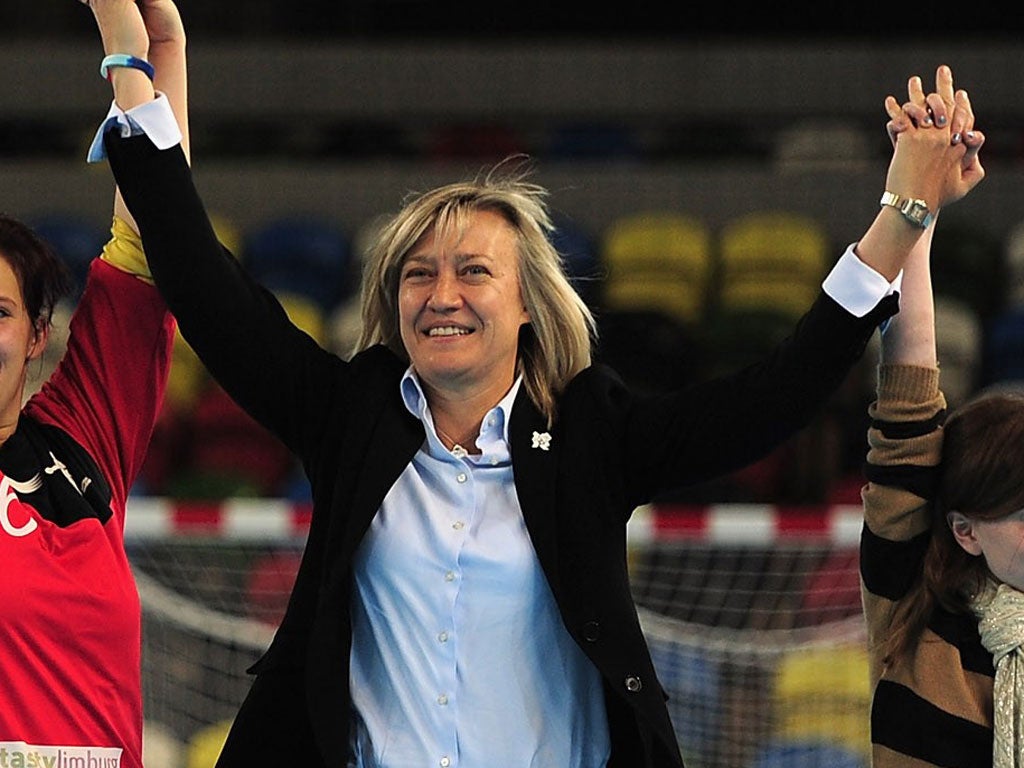Inside Lines: Woodward is favoured to rejoin world rugby scrum

Your support helps us to tell the story
From reproductive rights to climate change to Big Tech, The Independent is on the ground when the story is developing. Whether it's investigating the financials of Elon Musk's pro-Trump PAC or producing our latest documentary, 'The A Word', which shines a light on the American women fighting for reproductive rights, we know how important it is to parse out the facts from the messaging.
At such a critical moment in US history, we need reporters on the ground. Your donation allows us to keep sending journalists to speak to both sides of the story.
The Independent is trusted by Americans across the entire political spectrum. And unlike many other quality news outlets, we choose not to lock Americans out of our reporting and analysis with paywalls. We believe quality journalism should be available to everyone, paid for by those who can afford it.
Your support makes all the difference.Sir Clive Woodward has enough irons in fires not to be first in the Jobcentre queue tomorrow morning following the termination of his role as performance director of the British Olympic Association.
More likely he will be taking a call from Debbie Jevans, the new overlady of England Rugby 2015, the body organising the next World Cup for the Rugby Football Union.
Jevans, 52, the former British tennis star recruited after her success in running the 2012 Olympic sports programme, will be happy to enlist Woodward's expertise in not only constructing the tournament but helping her sort the current dispute with the Premier League over the use of football stadiums to host World Cup matches in September 2015.
This has become acrimonious, with Francis Baron, the former RFU chief, claiming that Premier League clubs gave legally binding guarantees that stadiums would be made available. But the Premier League's Richard Scudamore says they have yet to give permission for clubs, including Manchester United, Newcastle and Liverpool, to stage games because the fixture list cannot not be confirmed until two months before the World Cup begins.
The Sports Minister, Hugh Robertson, is keeping a watching brief on a situation he believes will be resolved soon. The presence of Woodward, 56, could help break the impasse as he is respected within football and a good friend of Scudamore, who is to hold meetings with ER 2015 next month ahead of the World Cup draw in December. The exit of the former Rugby World Cup-winning coach from the BOA – first predicted here – before the November AGM will heighten tensions between the chief executive, Andy Hunt, and Lord Coe, who is expected to be the new chairman, and may well result in Hunt's own departure.
New dawn or passing fad?
The post-Paralympics litmus test of whether the nation's new-found enthusiasm for applauding the endeavours of athletes with disabilities is more than a passing fad will come next year, when Special Olympics GB hold their national Summer Games at the University of Bath.
Unlike Paralympians, the 1,700 competitors, all with learning disabilities, who will take part in a dozen sports from 28 August to 1 September receive no Lottery or Exchequer funding. Surely they are worth a cheer – and a bit of TV coverage.
Gay boxers can fight corner
So Orlando Cruz, the 31-year-old world ranked featherweight from Puerto Rico, admits to being gay. He is by no means the first gay boxer, though calling them such can have tragic consequences.
Emile Griffith, born in the US Virgin Islands, was a six-time world champion at welterweight and middleweight in the Sixties, and there was always speculation about his sexuality – he talked with a lisp, had an effeminate gait and had worked as a milliner designing women's hats. We certainly raised our eyebrows when Griffith fought at Wembley against Brian Curvis. When we went to his dressing room afterwards he was passionately kissing one of his cornermen. But in those days no one asked questions, and to admit to being gay in an environment such as boxing would have been professional suicide.
Griffith, now 74, has finally declared the homosexuality that was an unspoken backdrop to his career. Unspoken, that is, except, tragically, for the man from whom he first won the welterweight crown, the Cuban Benny "Kid" Paret. In their third bout at Madison Square Garden Paret taunted him with the word "maricon" – the Spanish equivalent of "faggot". In the 12th round an outraged Griffith battered him unconscious, and while the Cuban was on the ropes struck him for several seconds before the referee, Ruby Goldstein, hauled him off. Paret died 10 days later.
Britain's most infamous gay boxer was Ronnie Kray of the Kray twins who terrorised London's East End in the Sixties. He had six pro bouts at lightweight in 1961. Most of east London knew Ronnie was homosexual, but only George Cornell said it to his face, calling him "a fat poof". Ronnie shot him dead at the Blind Beggar pub in Whitechapel.
Join our commenting forum
Join thought-provoking conversations, follow other Independent readers and see their replies
Comments